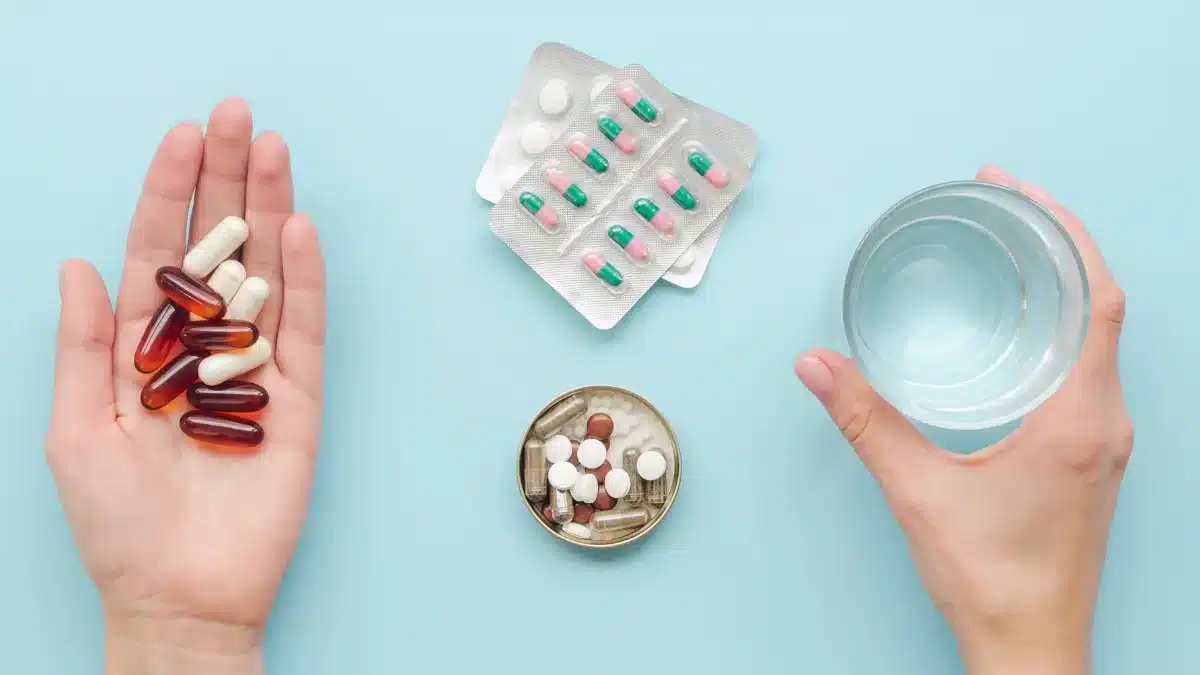Understanding Levofloxacin Interactions: A Complete Review
Levofloxacin is an antibiotic that helps to kill the pathogenic bacteria causing infections in humans, especially Urinary Tract Infections.
It belongs to an antibiotic group called Fluoroquinolones, including other common antibiotics like Ciprofloxacin.
However, Levofloxacin can sometimes react with unintended substances in the body because of its chemical nature, often causing serious patient consequences.
Therefore, a thorough knowledge of Levofloxacin interactions can help us avoid such unfortunate circumstances and properly plan recovery treatment without any adverse issues.
Let us look at the various Levofloxacin interactions with food and other drugs and learn how to avoid these issues early.
What are Levofloxacin contraindications
Contraindications refer to specific situations where a drug cannot be used by a person as it can be harmful.
Levofloxacin also has several contraindications that restrict its use.
It can cause severe allergic reactions (Anaphylaxis) in sensitive patients, so using it is prohibited in people with a history of allergic reactions to antibiotics.
Diabetic patients under the oral Hypoglycemic drugs are also contraindicated for Levofloxacin use.
The antibiotic is also prohibited from being used in patients suffering from muscular disorders.
There are many instances when patients develop serious muscular disorders (like Rhabdomyolysis) with the administration of Levofloxacin.
The FDA has issued warning labels for Levofloxacin about causing tendon rupture, increased risks of being disabled, and irreversible side effects if administered to sensitive persons above 60.
Levofloxacin interactions with food
Levofloxacin is an antibiotic that has documented interactions with foods you consume regularly.
Knowing what foods are not suitable to eat when taking Levofloxacin can be an easy precaution against the potential side effects of food-drug interactions.
Some of the Levofloxacin interactions with food include:
Levofloxacin interactions with dairy products
Most dairy products contain Calcium as an important mineral.
The Calcium in dairy products undergo a chemical bonding with Levofloxacin, preventing the absorption of both the antibiotic and Calcium.
Levofloxacin interactions with dairy products are why the antibiotic should be taken two hours after a meal.
Levofloxacin interactions with caffeinated drinks
Levofloxacin should never be taken along with beverages such as coffee, tea, and energy drinks.
Levofloxacin prevents the clearance of caffeine from the body, which is present in caffeinated drinks.
By preventing the clearance, Levofloxacin increases the effects of caffeine in the body, resulting in faster heartbeat, lack of sleep, and restlessness.
Levofloxacin interactions with alcohol

Drinking alcoholic beverages with antibiotics can cause stomach discomfort, nausea, and dizziness.
Disorientation, with symptoms of lack of direction, time awareness, and self-identity, can result from taking Levofloxacin medications with alcohol.
Levofloxacin interaction with minerals
Levofloxacin reduces the absorption of minerals from the food in the body by forming chemical complexes with them, which makes the minerals unavailable.
Research has shown that Fluoroquinolone antibiotics hinder the absorption of minerals like Aluminum, Magnesium, and Calcium.
It is best suggested to avoid taking Levofloxacin two hours after or before a meal.
Levofloxacin drug interactions
Drug interactions of Levofloxacin with other pharmacological chemicals are much more complicated and harmful than food interactions.
These drug interactions can cause severe physiological effects in your body and even death if not avoided.
Let us explore Levofloxacin drug interactions with common pharmaceutical drugs.
Levofloxacin and Antacid interaction
Levofloxacin interacts with the minerals in antacid tablets like Calcium and Magnesium and suffers from decreased absorption due to chemically combining them.
Antacids are advised to be administered at least two hours before or after taking Levofloxacin.
Levofloxacin and Tizanidin interactions
Tizanidin is a drug that relaxes our muscles temporarily and relieves spasms and cramps.
Taking Levofloxacin with Tizanidin can have serious consequences like sleepiness, slow breathing, and even death.
Using both of these medications together must be completely avoided.
Levofloxacin and hypoglycemic agents interaction
Hypoglycemic agents are antidiabetic drugs that are taken to reduce the effects of diabetes.
Levofloxacin has been found to increase the risks of Hypoglycemia (lowering blood sugar below the standard) when taken with Hypoglycemic drugs.
Warfarin and Levofloxacin interaction
Warfarin is a medication that dissolves blood clots when clots block deep veins.
Levofloxacin interacts with Warfarin to increase blood clot time and can cause excessive bleeding in patients.
Ibuprofen and Levofloxacin interaction
Ibuprofen belongs to the Non-Steroidal Anti-Inflammatory Drugs (NSAIDs) category and is usually recommended as a painkiller.
Levofloxacin interacts with Ibuprofen to cause seizures (uncontrolled bursts of brain activity) in patients.
The symptoms of seizures include loss of consciousness, staring blankly in space, breathing problems, and apparent confusion.
Diclofenac and Levofloxacin interaction
Diclofenac is a medicine used to cure swelling and pain and is also an NSAID.
Diclofenac has been found to increase the bioavailability of Levofloxacin due to drug interactions in the body.
This results in an increased concentration of antibiotics in the blood, enhancing the side effects of Levofloxacin.
What to do if I suffer from Levofloxacin interactions

Consulting with your doctor before taking any medication of Levofloxacin is extremely important.
Any possible future problems due to drug interactions can be prevented by informing your doctor what other medications you are taking.
Besides drug interactions, Levofloxacin can cause serious side effects like dizziness, anxiety, lack of sleep, restlessness, and headaches.
If any side effects are observed, you must stop your Levofloxacin medication immediately and seek professional help with your next course of action.
Takeaway
Levofloxacin is a popular antibiotic commonly prescribed for Urinary Tract Infections.
Although Levofloxacin is beneficial in many antibacterial treatments, it has several contraindications.
Levofloxacin contraindications include people suffering from muscular disorders, antibiotic-sensitive patients, and older adults.
Dairy products, alcoholic beverages, caffeinated drinks, and minerals present in the food are affected by Levofloxacin interactions.
Most of these interactions cause side effects like restlessness, lack of sleep, and disorientation.
Levofloxacin interactions with other pharmaceutical drugs are more serious and can cause Hypoglycemia, excessive bleeding, seizures, and even death in rare cases.
It is always advised to seek help from healthcare professionals when dealing with Levofloxacin interactions so that they can be prevented at an early stage.
Frequently Asked Questions
When is Levofloxacin contraindicated?
Levofloxacin is contraindicated when the person suffers from antibiotic allergies, tendon and muscular problems, alcoholism, and Diabetes. Older people are also contraindicated from Levofloxacin. If these contraindications are not followed, it may lead to Anaphylaxis, Rhabdomyolysis, tendon rupture, and possibly permanent disability.
What nutrient interacts with Levofloxacin?
Levofloxacin interacts with minerals like Calcium, Magnesium, Iron, and Aluminum in foods to prevent their adequate absorption into the body. This process takes place by Levofloxacin forming chemical complexes with the minerals present in foods.
What is the interaction of Levofloxacin and Ibuprofen?
Levofloxacin interactions with Ibuprofen cause seizures or abnormal hyperactivation of brain functions. The symptoms include a blank stare without direction, mental confusion, breathing problems, inability to maintain body balance, and ultimately loss of consciousness.
What to avoid while taking Levofloxacin?
Dairy products, caffeinated drinks, alcoholic beverages, multivitamins, and mineral supplements must be avoided while taking Levofloxacin. Several drugs like Ibuprofen, Tizanidine, Diclofenac, and Warfarin must also be avoided because of the serious effects of Levofloxacin drug interactions.
WowRx uses only high-quality sources while writing our articles. Please read our content information policy to know more about how we keep our content reliable and trustworthy.






